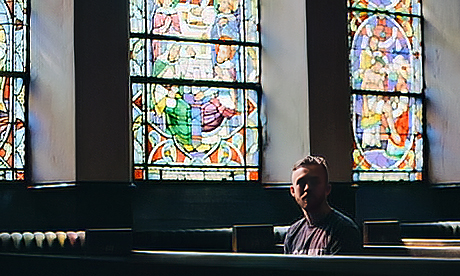When Cardinal McElroy, the bishop of San Diego, proposed in a recent America essay that the church’s ongoing synodal process demonstrates a need to be more welcoming of women and L.G.B.T. people, he set off a wave of criticism from some bishops, priests and lay Catholics who believe the church should continue to defend its traditional teaching.
Though Cardinal McElroy’s essay touched on a number of issues about the future vitality of the church, much of the criticism focused on his call for the church to be more welcoming to L.G.B.T. Catholics and boils down to the belief that the way for the church to welcome and include gay and lesbian people is by inviting them to conversion and a life of chastity, while forthrightly teaching the sinfulness of homosexual acts.
These kinds of essays tend to pop up whenever a high-profile church leader, including Pope Francis, preach a message of welcome to L.G.B.T. people and their families.
But in addition to the critique of Cardinal McElroy’s focus on welcome and inclusion, critics are also reacting to the process through which that could happen: the ongoing synod of bishops on the topic on synodality.
While Cardinal McElroy started off by noting that synodal conversations revealed significant concern about alienation from the church, much of the criticism in response to his essay is animated by the worry in some Catholic circles that the ongoing global consultation process initiated by Pope Francis in October 2021, and set to conclude in October 2024, could usher in changes to church teaching regarding human sexuality.
JD Flynn, a canon lawyer and the co-founder and editor in chief of The Pillar, wrote in a recent essay, “While the pope and other synod organisers have insisted the global synod process does not aim to focus on doctrinal changes, McElroy has suggested that it will—just as many Catholics have insisted it might since the process was announced two years ago.”
If it feels like we have been here before—a debate over controversial issues linked to a global synod of bishops—that is because we have.
In the run-up to the Synod on the Family, held in 2014 and 2015, bishops from around the world were asked to consult the laity ahead of a gathering in Rome in which they would discuss the church’s outreach to and support of families.
Francis declared that nothing was off the table.
Given that family life includes a host of joys and challenges, on the agenda was everything from economic opportunities to child care at Mass.
But in reality, at least in much of the Western media, two topics came to dominate the conversation: Communion for divorced and remarried Catholics and, as now, how the church ought to interact with its L.G.B.T. members and their families.
Ultimately, the bishops meeting to discuss family life in 2015 did not recommend any explicit changes to church teaching, though a footnote in the pope’s apostolic exhortation responding to the synod, “Amoris Laetitia,” appeared to have opened the door to divorced and remarried Catholics being welcome at Communion.
Two more hot topics would emerge a couple of years later, when bishops and lay Catholics in the Amazon region debated whether allowing married men to join the priesthood and women to be ordained as deacons could help alleviate the extreme priest shortage affecting many churches in many South American nations.
Today, the synod is again serving, in part, as a proxy for the ongoing debate over how the church maintains its traditional teaching at a time when women and L.G.B.T. people are more assertive in demanding equal treatment in society and the church.
In the context of the United States, Cardinal McElroy’s argument that women and L.G.B.T. people are deserving of a more pastoral welcome in the church may feel like an outlier, but that is not necessarily the case.
The U.S. Conference of Catholic Bishops released a report last year in which they summarised the 10-month consultation process for the synod on synodality that took place in 2021.
The place of L.G.B.T. people in the church was highlighted in the report, including in a section about groups of Catholics who feel marginalised.
“In order to become a more welcoming Church there is a deep need for ongoing discernment of the whole Church on how best to accompany our LGBTQ+ brothers and sisters,” the report states.
In other countries, the calls to make the church more welcoming for L.G.B.T. people have been even stronger.
Last year, Cardinal Jean-Claude Hollerich of Luxembourg called the church’s teaching on homosexuality “no longer correct,” and stated, “I think it is time for a fundamental revision of the doctrine.”
Cardinal Hollerich is also the relator general of the upcoming synod, which means he will lay out the synod’s theme at the start of the gathering and synthesise the speeches and reports before work begins on proposals.
Those proposals will then be delivered to the pope for his further discernment.
In short, Cardinal Hollerich will help shape the synod, which helps explain why some Catholics are fearful that the meeting could lead to changes in church teaching. Continue reading
- Michael J. O’Loughlin is national correspondent at America and author of Hidden Mercy: AIDS, Catholics, and the Untold Stories of Compassion in the Face of Fear.
Additional reading
News category: Analysis and Comment.




